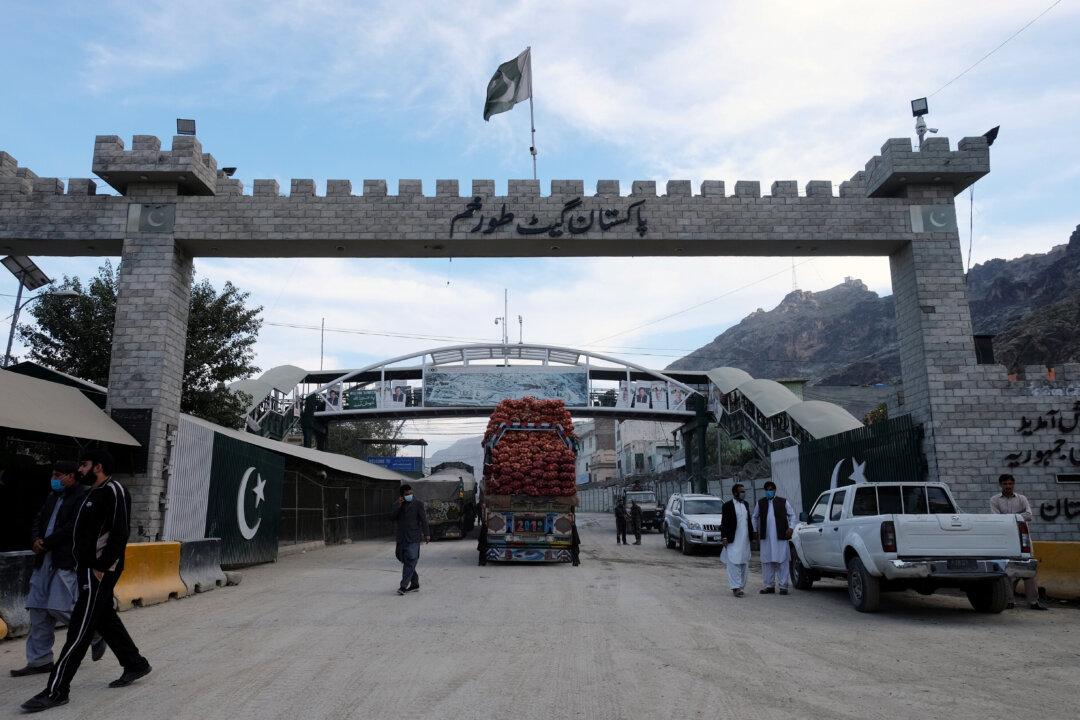QUETTA/ISLAMABAD, Pakistan—Pakistan on Monday reopened a major southwestern border crossing with Afghanistan that is currently under Taliban control on the Afghan side, Pakistani customs officials said, allowing over 100 trucks carrying goods to cross into Afghanistan.
The Chaman-Spin Boldak crossing, a key port for landlocked Afghanistan, had been closed by Pakistan for commercial traffic since fierce fighting for control of the crossing erupted between Taliban terrorists and Afghan security forces earlier this month.





